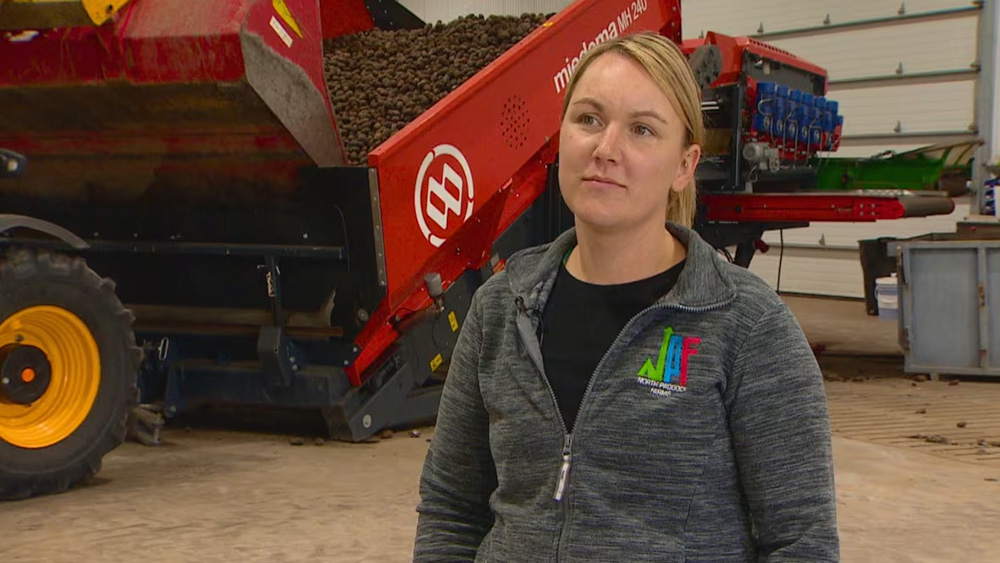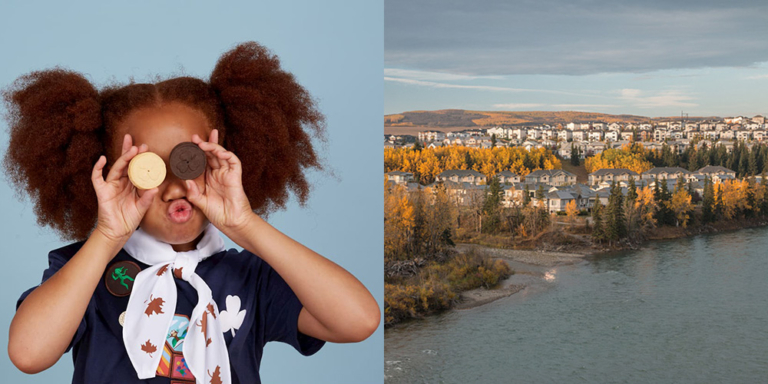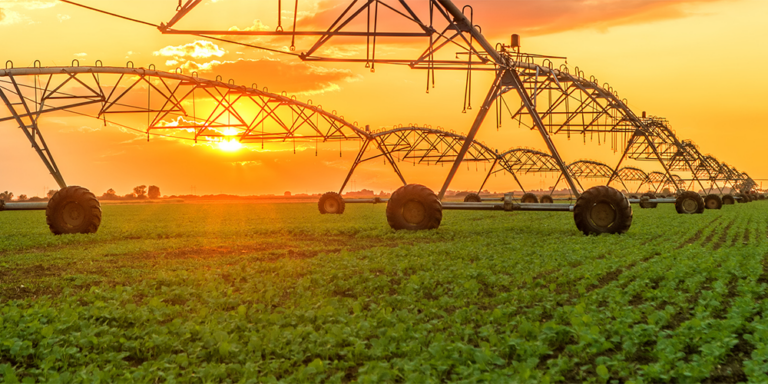We all know of horse trading, handshake deals, auctions, and estate sales among farmers and ranchers, but did you know that in Alberta if you have water rights, you can also sell, barter, and trade your water allocations?
With Alberta facing another likely drought this summer, some farmers will buy water from neighbours to survive.
In Alberta, water trading is a murky business, and this year, it’s likely to be a busy market.
Water Trading, Water Gambles
Alison Davie owns North Paddock Farms near Taber, where she and her family grow potatoes, fava beans, canola, hay, wheat, flax and garlic.
Davie grew up on her farm.
Ten years ago, she and her husband, Michael, took over the family farm operations from her parents.
The farm has never faced a drought like the one looming this year.
The mountain snowpack is thin, and reservoirs are low.
As a St. Mary River Irrigation District member, North Paddock Farms was informed that they would receive an allocation of eight inches of water this year.
That’s not nearly enough.


The farm needs at least 18 inches to grow its potato crop.
“If we need more water in this area, we look to see if there’s any available to purchase.… You’ve got neighbours; sometimes they’re not going to use their allocation,” Davie said in a CBC article.
The province allows people to sell, buy and trade their water allocations.
The terms are up to the individuals.
It could be a handshake, a cash deal, a loan, or a gift.
In times of water scarcity, prices get high fast.
“Farmers will pay compensation to each other if they deem it is worth it to them to have extra water,” said David Westwood, general manager of the St. Mary River Irrigation District.
Water trading is a risk for farmers like the Davies.
Buying extra water could be a waste of money if the summer turns out to be wet. There has already been some unexpected rain this spring, but will there be more, and will there be enough?
Not buying water could leave them high and dry.
The gamble may or may not pay off.
A Priority System
Alberta’s water market is a Wild West. Nobody knows what people are paying for water—not even the government.
Since 1894, the market has been based on a priority system called “first in time, first in right” (FITFIR).
Whoever was first to apply for water got the first water rights, and so on
In other words, a golf course owner who applied for a water allocation 50 years ago will have priority over a farmer growing potatoes who applied later.
The water allocation system does not consider food security or ecosystem health, just the order of applications.
University of Calgary researchers David Barrett and Kerry Black say Alberta’s water allocation system needs an overhaul, given current realities.
FITFIR allocation creates lots of problems:
- Some communities don’t have enough water to meet projected growth;
- Over allocations means some watersheds are drying up, negatively impacting native plants and animals; and
- Industry and large-scale corporate agriculture take most of the water leaving little for First Nations.
“Make no mistake, dwindling flows will have wide-reaching social, environmental and economic impacts. Governments and policymakers must act quickly to avert a larger crisis,” according to Professors Barrett and Black.
Back on the family farm in Taber, Alison Davie is staring down the barrel at a potentially tough growing season.
“It’s, you know, handshakes, contracts.… If you really need the water, you’re willing to pay more,” Davie said.” “All that extra water comes at an additional cost over and above our growing cost.”
The uncertainty of weather, the scarcity of water, and an out-of-date water allocation system make water trading a high-stakes and stressful endeavour for Alberta’s farmers and ranchers.








